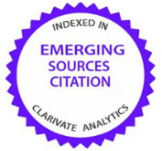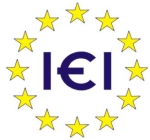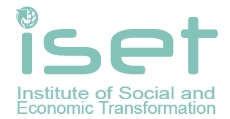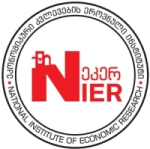The concept of public audit in accordance with INTOSAI professional statements (IFPP)
Abstract
Introduction. The article is devoted to the study of improving the types of public audit in accordance with the strategic objectives set by the international organization of supreme audit institutions INTOSAI, which has adopted standards of public audit in the form of professional statements IFPP.
Aim and tasks. The purpose of the article is a theoretical and methodological justification of the process of formation and development of public audit in accordance with new conceptual approaches, formed in accordance with the professional statements of INTOSAI (IFPP), practical recommendations for their practical implementation in Ukraine.
Results. It is established that the problem of state audit in terms of its varieties – performance audit, financial audit, which are regulated by the legislation of Ukraine, is one of the most important prerequisites for ensuring public requests for reliable and transparent information on the use of budget funds. However, as the study showed, insufficient attention was paid by the control bodies, in particular, to the audit of the legislative compliance of the actions of budget managers by the Accounting Chamber. It is proposed within the strategies of ISSAI state audit standards to introduce in Ukraine compliance audit as a type of state audit, which is provided by IFPP professional statements. The expected results of such implementation will allow to increase financial and executive discipline and to prevent illegal spending of budgetary funds.
Conclusions. In the practice of world state audit, a certain structure of types of state audit has been developed, which meets the demands of society and parliaments of the countries regarding the legality, efficiency and reliability of budget spending. The introduction of INTOSAI international standards aims to increase confidence in the state audit, ensures its comprehensive and comprehensive nature, implements effective and efficient professional principles and standards in the practice of domestic specialists. Improving the methodology of public audit generally meets the requirements of ensuring a high level of efficiency of the highest bodies of financial control in the interests of the development of a democratic society. Therefore, the introduction of all types of public audit in accordance with ISSAI standards meets the expectations of society and best international practice. Further developments should reveal the features of the implementation of a new type of state audit – compliance audit in terms of domestic and foreign methods and procedures for performing control actions.
References
2. Bowerman, M., Humphrey, C., Owen, D. (2003). Struggling for supremacy: the case of UK public audit institutions. Critical Perspectives on Accounting, 14(1-2), 1-22. https://doi.org/10.1006/cpac.2001.0524.
3. Bunn, M., Pilcher, R., Gilchrist, D. (2018). Public sector audit history in Britain and Australia. Financial Accountability & Management, 34, 64-76. https://doi.org/10.1111/faam.12143.
4. INTOSAI: Professional Pronouncements. Retrieved from: https://www.issai.org/professional-pronouncements/?n=0-1000000000.
5. Hay, D., Cordery, C. (2018). The value of public sector audit: Literature and history. Journal of Accounting Literature, v. 40, p. 1-15. Retrieved from: DOI: https://doi.org/10.1016/j.acclit.2017.11.001.
6. Heald, D. (2018). Transparency-generated trust: The problematic theorization of public audit. Financial Accountability & Management, 34, 317-335. https://doi.org/10.1111/faam.12175.
7. Jeppeson, K., Carrington, T., Catasús, B., Johnsen, Å., Reichborn‐Kjennerud, K., Vakkuri, J. (2017). The strategic options of Supreme Audit Institutions: The case of four Nordic countries. Financial Accountability & Management, 33(2,) 146-170. https://doi.org/10.1111/faam.12118.
8. Mnich, E., Nykonovych, M., Bardash, S. (2009). State financial audit: methodology and organization. Kyiv: Kyiv National University of Trade and Economics.
9. Reichborn-Kjennerud, K., Johnsen, A. (2018). Performance audits and Supreme Audit Institutions' impact on public administration: The case of the Office of the Auditor General in Norway. Administration & Society, 50 (10), 1422-1446. https://doi.org/10.1177/0095399715623315.
10. Shevchuk, V. (1998). Control of economic systems in a society in transition (problems of theory, organization, methodology). Kyiv: Kyiv State University of Trade and Economics. (in Ukrainian).
11. Nazarova, K., Mysiuk, V., Gordopolov, V., Koval, V., & Danilevičienė, I. (2020). Preventional audit: implementation of SOX control to prevent fraud. Business: Theory and Practice, 21(1), 293-301. https://doi.org/10.3846/btp.2020.11647
12. Tamosiuniene, R., Demianchuk, M., Koval, V. (2019). State Regulation of Bankruptcy Relations in the National Economy. Economics. Ecology. Socium, 3 (4), 19-27.
13. Nazarova, K., Hordopolov, V., Kopotiienko, T., Miniailo, V., Koval, V., & Diachenko, Y. (2019). Audit in the state economic security system. Management Theory and Studies for Rural Business and Infrastructure Development, 41(3), 419-430.
14. Mussapirov, K., Djаlkibaev, J., Kurenkeyeva, G., Kadirbergenova, A., Petrova, M., & Zhakypbek, L. (2019). Business scaling through outsourcing and networking: selected case studies. Entrepreneurship and Sustainability Issues, 7(2), 1480-1495.
If the article is accepted for publication in the journal «Economics. Ecology. Socium» the author must sign an agreementon transfer of copyright. The agreement is sent to the postal (original) or e-mail address (scanned copy) of the journal editions.






















